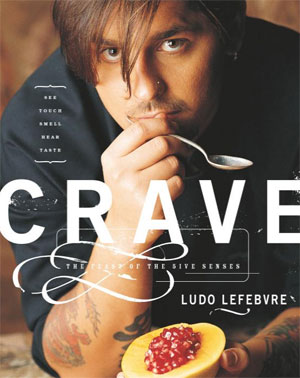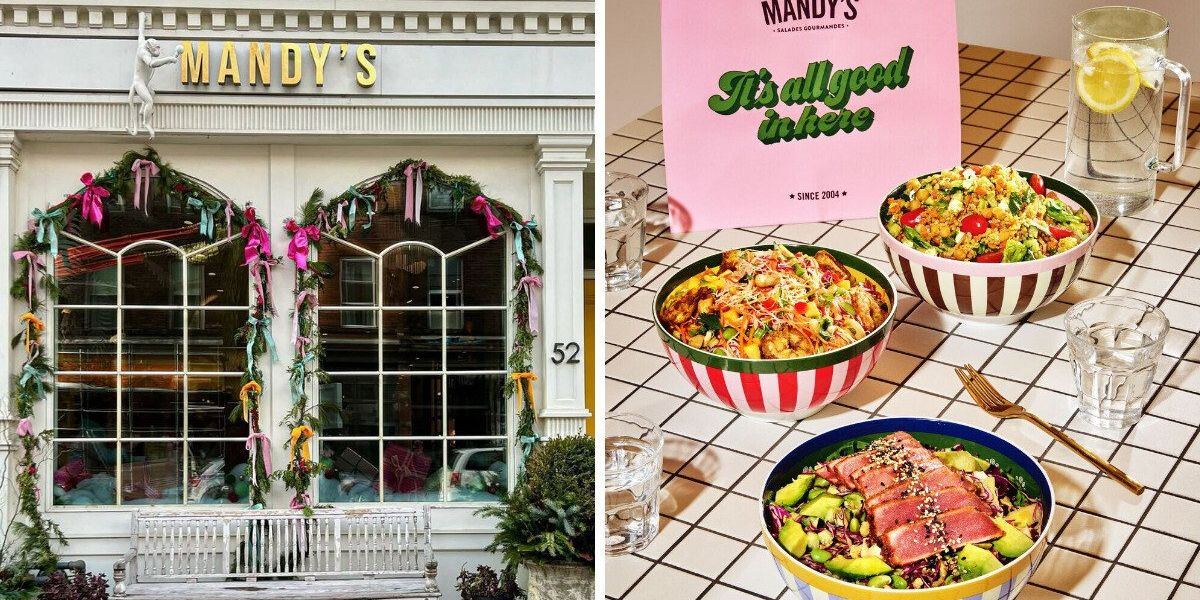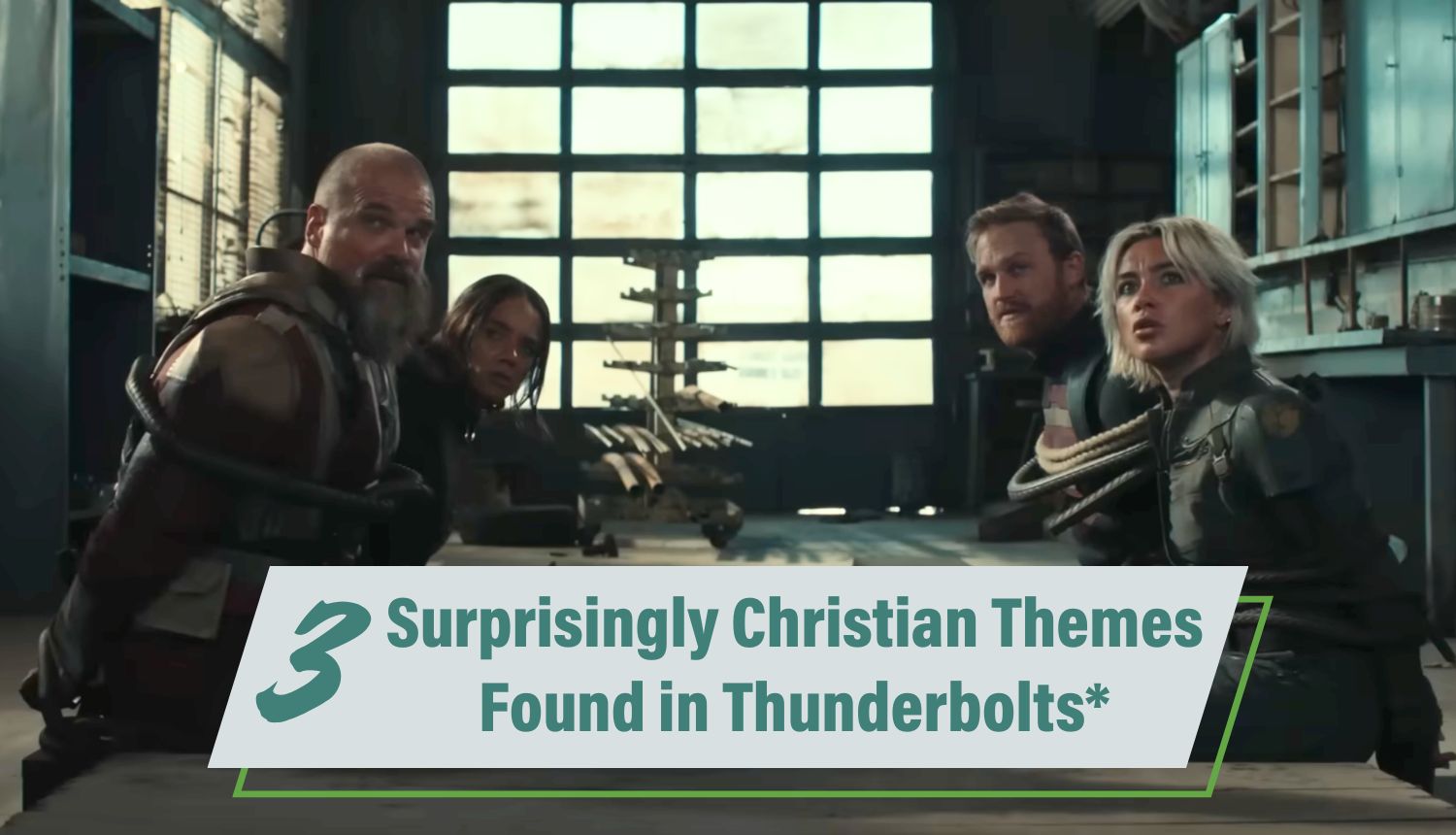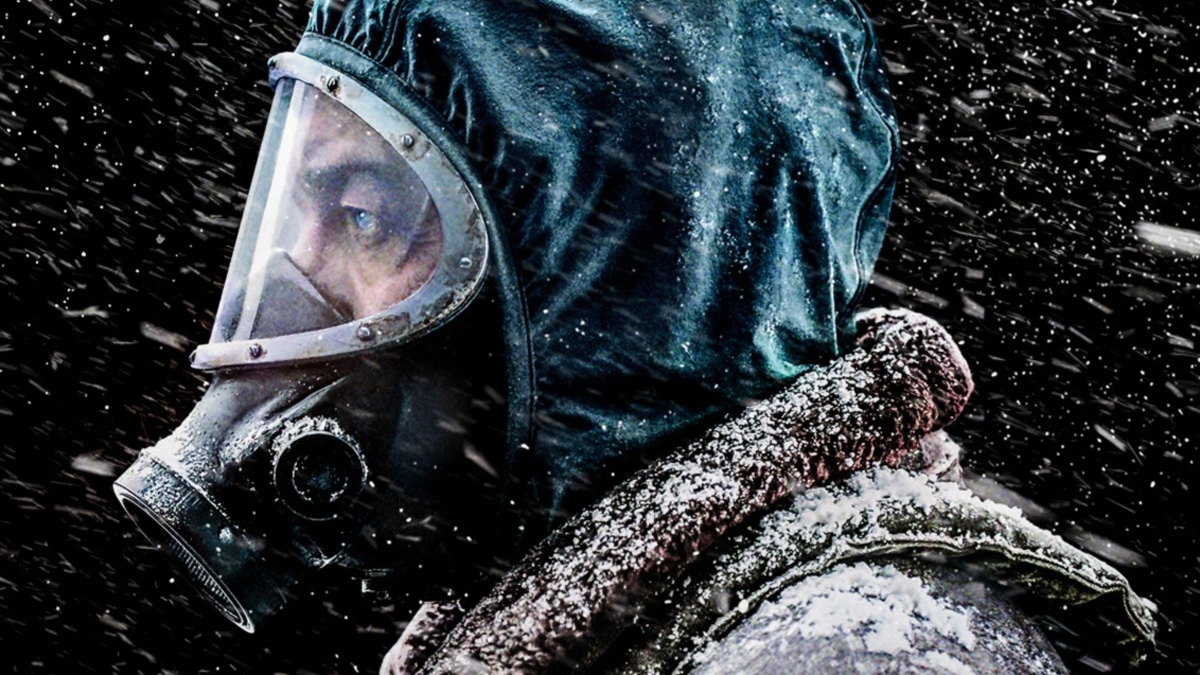“The worst enemy you can meet will always be yourself,” philosopher Friedrich Nietzsche once wrote. And so it is in Thunderbolts*.
Sure, the film (now called The New Avengers, if one takes Marvel’s publicity stunt at its word) has plenty of other ne’er-do-wells. Embattled CIA Director Valentina Allegra de Fontaine is plotting and scheming. A titanic bad guy is said to be as strong as all the Avengers rolled into one. Even our heroes have been villains a time or two.
But how did they become villains? Now, there’s something worth talking about.
None of the characters we meet here—be they hero or villain—started out that way. Their choices brought them to where they stand now. But those choices weren’t made in a vacuum, either. They were influenced by other people’s bad choices, too.
That makes Thunderbolts* a surprisingly fertile landscape for discussion. This film is more than the CGI-saturated, smash-bang-wow we’ve seen from the latest installments of the Marvel Cinematic Universe. This is a surprisingly human, refreshingly relatable story.
The film still comes with plenty of issues—some expected, some not. Be sure to check out our Plugged In review to see whether Thunderbolts* is navigable for you and your family. But if it is, and if you do see it, pop back here for some possible conversation threads you can dive into with your family and friends.
(Oh, and be aware: To get into these threads, we’ll need to spoil a few things.)
Scars
Early on in the film, the soon-to-be Thunderbolts—now, just separate mercenary assassins—meet in Valentina’s super-secret bunker. They discover that Valentina has hired them to kill each other off, with any survivors destined to be incinerated in her elaborate trap. Oh, and they also run into a seemingly regular ol’ pajama-wearing guy named Bob.
Our “heroes” realize that they’re going to have to work together to get out. Bob says that they should go on without him.
“Everyone’s better off if I just stay put,” Bob says with a sad smile.
Yelena Belova, a one-time Black Widow assassin, is having none of that. She insists that Bob should come with them. And soon, she gets the first inkling that there’s something funny about Bob. When their hands accidentally touch, she has an intense flashback to a painful childhood memory: As part of her prepubescent assassin training, she lured one of her own friends to her death. It’s one of many memories that have haunted Yelena ever since.
Scars. We all have them. The reasons for them may not be as dramatic as Yelena’s, but they still hurt. They still leave a mark. They still shape us, and twist us, and sometimes even break us.
Throughout the film, we see the impact such emotional scars have had on Yelena. She talks about how unhappy she is. How pointless it all seems. She admits that when she’s not working, she fixates on all the horrible things she’s done. And part of her wonders (just as Bob wonders) if everyone would be better off without her.
The biggest Big Bad in Thunderbolts* is an entity known as Void, and the villain can indeed can do some horrible things. But the real void our heroes battle is the void inside themselves. The draw of the darkness. The temptation, perhaps, of termination.
“We’re losers!” Yelena shouts at one point, and she means it. Most of our Thunderbolts feel that, too. We can’t save anyone. We can’t even save ourselves. We’re losers. We’re lost.
I’ve dealt with depression on some level for a good chunk of my adult life (I even wrote a book about it), so this theme hits home for me. Thunderbolts* is more than a superhero movie: It’s a meditation on mental illness.
We’re losers.
You’d think that Christians would be immune to that sort of dark thinking. We should be secure in God’s love for us—assured that we know the glorious end of the story. But we’re not. Read the Bible or scour the histories of some of Christendom’s most admirable characters, and you’ll see surprising threads of doubt and despair. Even though God tells us that we’re His most beautiful creations, it can hard for even committed Christians to believe it.
Experts say that depression and anxiety is skyrocketing in children and teens. So many of them feel isolated, unlovable and even worthless. And so many of their parents have no idea.
Thunderbolts* might wind up being a good catalyst for an overdue conversation. And it gives us a hint as to what might ease that sense of worthlessness (and our next point), too.
When Yelena unpacks her own feelings of worthlessness and hopelessness to her surrogate father, Alexei, the one-time Red Guardian said this:
“When I look at you, I don’t see your mistakes. That’s why we need each other.”
I talked about that statement when I sat down with Bret Eckelberry the other day for a YouTube video. I mentioned that Alexei’s statement made me think about how God, while not ignoring our mistakes, never loses sight of the people He created us to be. In His eyes, we’re still so beautiful.
But here, I’d like to concentrate on the last part of Alexei’s statement: That’s why we need each other.
Depression is, by its very nature, isolating. When I’m struggling with depression, I want to roll up in a ball, much like a pill bug, and hide in a dark hole, away from everyone. The monster of depression wants us to feel alone. It wants to lock us away in a cell of our own making. In the language of Thunderbolts*, it wants to trap us in the void.
So when people ask me what they can do to help someone dealing with depression, I say two words: Be there.
You don’t need to know what to say. Stay away from simple platitudes or assurances, because very often depressed people just aren’t in a place they can hear or believe them. But let them know that you’re there for them. That you’re not going anywhere. Even when they feel at their most unlovable, you love them anyway.
We see that in Thunderbolts*. Yelena won’t leave Bob in that trapped bunker. And as the film goes on, Yelena’s commitment to the guy grows. She’s there for him—even when common sense and self-preservation tell her she should just take off.
Early on in the film, Bob asks Yelena how to deal with the void inside themselves. Yelena laughs it off at first. But much later, she says something that many a health professional might say:
“We have to let it out. We have to spend time together.”
It sounds so simple, right? Naïve, even. Togetherness isn’t a cure for depression or mental illness. But yes, it can help. It can, in fact, make a huge difference. When you’re feeling worthless, a friend or family member can make you feel valued. When you’re feeling like everyone would be better off without you, a friend or family member can expose that lie.
It’s biblical, too. “Again, if two lie together, they keep warm, but how can one keep warm alone?” King Solomon, gifted with wisdom from God, writes in Ecclesiastes 4:11-12. “And though a man might prevail against one who is alone, two will withstand him—a threefold cord is not quickly broken.”
Community is an essential part of the Christian walk. Honestly, it’s an essential part of life. We need each other. And when the Thunderbolts come to understand that, they also begin to understand our third point.
What Makes a Hero
As most of our Thunderbolts snipe at each other and kick themselves for their past mistakes, Alexei remains adamantly convinced of their mutual greatness. His conviction can feel even delusional at times.
“This has makings of team!” he says. “This team can be the heroes on the Wheaties box!”
To be that team, to grace the cover of that metaphorical cereal box, they don’t need to be mistake free. They don’t need to be perfect. They just need to choose—in that moment—to be the heroes they need to be. Perhaps the heroes they’ve always wanted to be.
That’s the same with us, too, right? We’ve made mistakes. We’ve failed at times, and sometimes we fail badly. We’ve sinned. We’ve disobeyed God. We have all felt like, in Yelena’s words, “losers.”
But if we failed yesterday, we can try again today. We can choose to be better. Every day. Every minute. We can choose.
Sometimes that choice is hard. Sometimes the enemies we face—just like the enemy that the Thunderbolts face in the movie—are staggeringly overpowered. We feel outmatched. And that can lead to hopelessness and despair.
But that’s one of the subtle beauties of Thunderbolts*. See, they are outmatched. They’re not nearly strong enough. But our heroes (for at the end of the day, they are heroes) do what they can. In the midst of overwhelming obstacles, they do what they can. Maybe they can’t save the universe. But they can save a life here. A life there. They can make a difference.
And then, at the movie’s climax, Yelena realizes that there’s one more life to save: the life of their biggest foe.
Yelena has some mad assassin skills. Her cohorts are super strong. One can walk through walls. But all that proves to be useless against their godlike foe. How do you deal with someone like that? She winds up doing something that each of us are called to do: She loves her enemy. She literally wraps him in her arms and hugs him.
“If I speak in the tongues of men and of angels, but have not love, I am a noisy gong or a clanging cymbal. And if I have prophetic powers, and understand all mysteries and all knowledge, and if I have all faith, so as to remove mountains, but have not love, I am nothing. If I give away all I have, and if I deliver up my body to be burned, but have not love, I gain nothing.” [1 Corinthians 13: 1-3]
Superpowers? In the end, that’s not what wins the day. It’s not what makes Yelena and her cohorts heroes. It’s love.
That’s a truth that not only serves them well, but serves us, too.

















